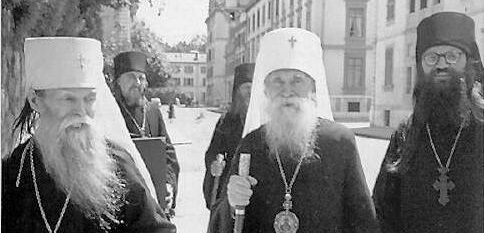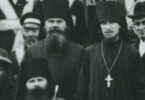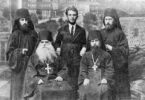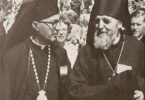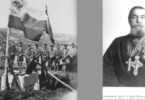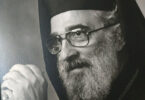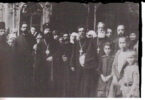From ROCOR Studies
This account supplements the correspondence between the two metropolitans that took place in 1946-1949. “How Wonderful it Would be if All of us Russian Exiles Would Attain the Church’s Freedom from All Influences that Are Earthly, Worldly, and Not of the Church” Correspondence between First Hierarchs of the ROCOR and Parisian Exarchate (1946-1949).”
The Second Diocesan Congress of the Western European Exarchate (“Evlogians”) held in 1949 adopted a decision to look for rapprochement with “synodal jurisdiction” (ROCOR). In his memoirs, Archpriest Vasily Zenkovsky recalled the solemn declaration by Metropolitan Vladimir about his readiness to meet with Metropolitan Anastassii. Even though the correspondence mentioned above reached an impasse, the meeting nevertheless took place in June 1950. That was the end of the attempts at dialogue between the two Russian refugee churches. In November 1950, Metropolitan Anastassy left Muhcih for the United States for permanent residence.
Deacon Andrey Psarev,
July 8, 2021
The meeting did not fall into place for a long time, not until a certain Ms. Fischer, the Russian Orthodox wife of a wealthy Swiss man, made efforts in order to arrange it. She covered all the costs of travel to Geneva (which was chosen as a “neutral location” for the meeting) and of lodging for both Metropolitans during their stay. Her initiative and insistence finally had the desired effect on Metropolitan Anastasii, who had been putting off the meeting.
According to a proposal by Metropolitan Vladimir’s diocesan council, both Metropolitans ought to be accompanied by 3–4 competent members from their respective diocesan administrations for the purposes of working out an agreement. This plan evidently did not resonate with Metropolitan Anastasii, who – as shall become clear – did not seek to come to any kind of agreement. After Ms. Fischer intervened in this matter, it was resolved that both Metropolitans would be accompanied only by their secretaries during the meeting (Metropolitan Vladimir by Archimandrite Savva and Metropolitan Anastasii by Archpriest George Grabbe).
In early July 1950 (almost a year after Metropolitan Vladimir had made the proposal to Metropolitan Anastasii), both Metropolitans arrived in Geneva, where, in accordance with Ms. Fischer’s plan, they and their secretaries stayed in a very nice hotel. They spent the first day engaged in polite conversation about their health, church news, etc. On the second day, the two Metropolitans met without their secretaries. Metropolitan Vladimir had come to Geneva with particular proposals in mind and set these out to Metropolitan Anastassii. They ultimately came down to – as was hinted at above – unification either under the Patriarch of Constantinople or along territorial lines, that is, such that there would be one jurisdiction in each country with a Russian émigré presence and never two or more bishops at once in one and the same place (which is at odds with the canonical structure of the church). Naturally, Metropolitan Anastasii rejected the first of these proposals. He said that he did not object to the second, but deemed it “premature”. Metropolitan Vladimir suggested the following: that Germany, England, and Switzerland be under Metropolitan Anastasii’s jurisdiction, while France, Italy, Belgium, and Scandinavia be under his own. This plan has a bearing on the actual situation: while there are parishes with an allegiance to Metropolitan Anastasii in France and Belgium, they are negligible in number.
This was the end of it all. They drank tea and shared a meal together. The next day, there was a service in the church in Geneva (in Metropolitan Anastasii’s jurisdiction). Metropolitan Anastasii did not propose that Metropolitan Vladimir serve the Liturgy, as a result of which he did not serve himself: both Metropolitans were simply present at the service. Afterwards, Metropolitan Anastasii ‘introduced’ Metropolitan Vladimir to his flock and suggested that they go up to him (Metropolitan Vladimir) for a blessing. That was all; Metropolitan Anastasii has not taken up Metropolitan Vladimir’s suggestion since, and the official press outlets that are subordinated to him – especially the journal Pravoslavnaia Rusʹ [Orthodox Russia] edited by Hegumen Konstantin Zaitsev, formerly the scholar and writer Kirill Iosifovich Zaitsev – continue to make vicious attacks on Metropolitan Vladimir’s jurisdiction. This is the situation at present, and there are no grounds to expect that it will change any time soon.
Based on a manuscript from the personal archive of Nikita Struve

